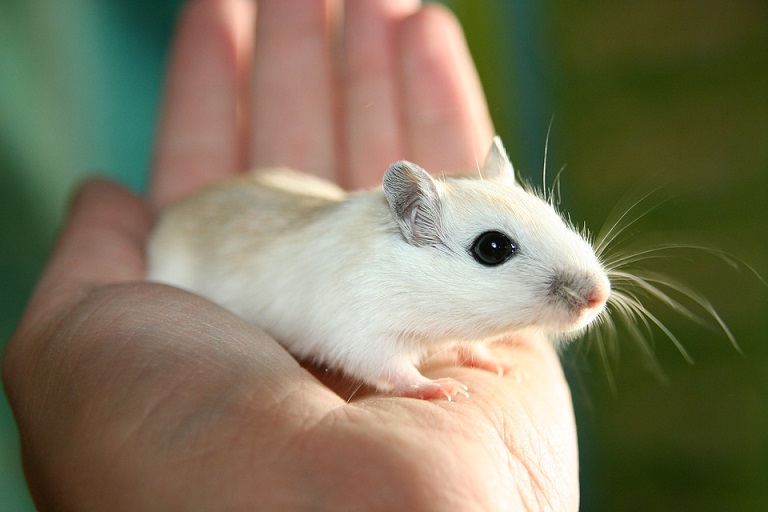Animal Experimentation – Facts you Need to Know
Throughout the history of human civilization, animal experimentation has played an important role; these experiments helped in new discoveries, which have been beneficial to all. Some scientists, however, have preferred to turn the blind eye to the fact that many animals undergo tremendous suffering and serious harm as they are subjected to such experimentation.
Many individuals, therefore, are believed to be ignorant to the lives of these animals; hence, they are unable to comprehend the real laboratory techniques and procedures. Besides the philosophical questions that have arisen behind the animal experimentation, moral and ethical issues are the major reason why many people, especially animal rights activists have strived to ban it in each and every state across the world.

The activists strongly believe that there is no genuine reason as to why any living thing, including animals, should be subjected to such unwanted torture and cruel punishment, in order to serve other people’s needs. All over the world, animal experimentation has become one of the most frequently debated and controversial topics. Despite the fact that animal experimentation is cruel, it has helped human beings greatly not only in progressing, but also in becoming advanced in technology and sciences, as well.
On one hand, animal experimentation is beneficial since it can be used in saving human lives. Given the fact that human beings are much alike with animals, animal experimentation can be employed in developing of new cosmetics, cures, medicines, and other products through carrying out vital experimentation on them. It also seems to be a small crime to kill animals if it is for a noble aim. For instance, it is a known fact that today animal experimentation is not only the most inexpensive but also the most reliable form of experimentation.
On the other hand, despite the fact that animal experimentation is beneficial, it is also destructive in that such experiments are both exceptionally vicious and gruesome. Human beings subject animals to a lot of torture and suffering for their own benefit and selfish ends; thus, they are exploiting and denying helpless animals their rights. Despite the fact that justice should be served at all times, such unfair treatment to animals during experimentation is unacceptable. Given the fact that there have been sophisticated advancements in technology and sciences, it is prudent for the human race to devise some alternatives aimed at replacing human experimentation. These advancements, therefore, should serve as a wakeup call to humans to seek some other morally acceptable alternatives for animal experimentation.

According to some arguments of certain individuals, animal experimentation should be a continuous process if any advancement in sciences and medicine are planned. It is attributed to the fact that animals are a good subject for experimentation since they have the same tissues and organs like human beings. Animals are good analogues; therefore, they can be best used in experimentation because they are not only easy to house and feed, but they are also small. In most cases, it is very difficult to bring all the people on board in the production of a new drug.
As a result, animals form a good basis, on which such experiments can be conducted, because, apart from yielding a high number of offspring, they are also easy to breed. The ability to yield a high number of offspring within a short period of time makes animals the best bet for performing numerous experiments at the same time. An increase in a number of trials that can be conducted on animals also leads to an increase in the data that can be captured and used in ascertaining the accuracy of the experiment.

Animal experimentation is useful in that it helps in avoiding instances, in which human beings could succumb to death because of carrying out an experiment on them when drugs effects are unknown. Such casualties most likely will result in the discontinuation of the whole research project regardless of whether the deaths are a coincidence or not.
On the other hand, animal experimentation is not necessary in advancing medical research or for other purposes since the human body, and that of other living beings is extremely complex. As a result, humans differ from other living creatures not only genetically and anatomically but also metabolically. Consequently, any data derived from animal experiments for medical and other purposes cannot be accurate or sufficient enough to be extrapolated to people.
One of the most common perceptions about animal experimentation is the assumption that it is vital for the development of cures, vaccines, and treatments for various human illnesses. Proponents always have been fond of asking questions as to what will happen on research on heart diseases, cancer, and AIDS if animal experimentation is halted totally. They have also raised questions as to whether there will be any progress or development in treatments and cures for such types of illnesses. There has been a rising movement among the healthcare professionals, who also include scientists, doctors, and other prominent members of society.
They are educated and learned people; however, they oppose the use of animal-based experimentation because of scientific and medical reasons. They have argued that animal experimentation or research is based on false premises and that results got from animal experimentation cannot be applied correctly to the human issues.
Animal experimentation should not be tolerated because it is a well-known fact that there is different reaction to vaccines and drugs among human beings and animals. As a result, ignorance of such natural uniqueness has not only been costly but also dangerous to the health of humans. For instance, the Thalidomide tragedy, which occurred between the 1960’s and 1970’s, is a good case study of the dangers of animal experimentation.
Despite the fact that Thalidomide had been experimented previously on various types of animals, it resulted in the deformities of approximately 10,000 infants, whose mothers had taken the drug. It happened despite indications that it was a better sedate for both breastfeeding and pregnant mothers, which could pose no side effects for either the child or mother.
In addition to that, another example of how animal experimentation is dangerous is the case of the Clioquinol drug, which was experimented on animals, but had a negative effect on human beings. The drug was manufactured in the 1970’s, in Japan, and marketed as a safe relief for diarrhea. However, besides being unable to work for humans, actually the drug was also known to cause diarrhea. When the drug was finally administered to human beings, it resulted in the paralysis or blindness of approximately 30,000 individuals and deaths of many others.
The cases indicated above can never be labeled as being isolated. Despite the fact that many pharmaceutical companies use various drugs to experiment on animals routinely, revelations made by The Journal of the American Medical Association revealed that approximately one hundred thousand individuals die while some other 2 million people are hospitalized each year due to prescription of drugs.
In addition, recently, it was reported by the British Medical Journal that four out of every ten patients taking a prescribed drug suffer from noticeable side effects. It is also worth noting that most of the clinical observers concur that there is a great rise in the number of diseases, which are medically induced. It is reported that about one out of ten hospital beds actually is inhabited by a patient who has been made sick by their own doctor.

There are various examples of the differences between animals and human beings. For instance — while penicillin is known to kill guinea pigs and cats, the same drug has saved the lives of many people. While digitalis has saved the lives of many cardiac patients for a long period of time by lowering their heart rates, the same drugs are known to raise the blood pressure of dogs. Arsenic has also been known to be poisonous to sheep, mice, and rats. These examples back up the fact that animal experimentation should never be condoned.
It should be noted by everyone that, indeed, animal experimentation is known to confuse various issues and worst of all making such results lack scientific precision. There is totally no connection whatsoever between human health and vivisection. The value of animal experimentation has been held greatly due to brainwashing of the public mind for a long time.
Pharmaceutical companies have also been known to spend a fortune on financing and popularizing the positive sides of animal experimentation in various universities and institutes. It, therefore, should be clearly noted that, if any progress in the field of medicine is to be attained, new approaches are required since human medicine can and should never be based on any veterinary medicine. The abolishment of animal experimentation and research will imply that such resources are channeled into prevention, and the forms of research will not get a chance of advancing not only in human health, but in human medicine, as well.
About the author: Laura Duncan is a specialist in English literature at Orlando University. She is currently working on a variety of topics related to studying the state of sociology. Laura is the leading explorer of US poetry of the 20th century and Yo Soy Joaquin one of the most important analytical research in her career. She also studies the influence of literature and language on the consciousness of society.
What is your opinion in regards to animal experimentation? If you would like learn more about this issue please check our the Humane society animal cruelty and facts. Please leave your comment below.

This is a well written and well thought out article, I personally agree with a lot of it, I personally do not like the idea of things being tested on animals. The only point that I can not agree with is that there are many cross overs between vet med/treatments and humans. I guess I say that because I have taken a lot of vet tec course as well as a number of Wilderness, remote first aid training.
Hi Valeria,
Thank you for reading my article and for you valuable insight about the cross overs between vet med/treatments. I appreciate your opinion and sharing your knowledge. Thanks for stopping my by and commenting. Have a healthy, happy & blessed.
It was a very interesting article, I am always torn between it, I prefer when possible to support non-animal use so I really agreed with so many of the things written, I also see the other side as well for a few things. Its hard to be torn both ways.. thank you for sharing that post.. I do enjoy reading from other counties then my own.. it helps get us out of our information bubbles.
I think many things in life have 2 sides that makes it hard to know which side of the fence we choose. The important part that we do stay opened minded and keep ourselves educated about the happenings in our world. I certainly agree that it helps to stay out of our informational bubbles. Have a healthy, happy & blessed day.